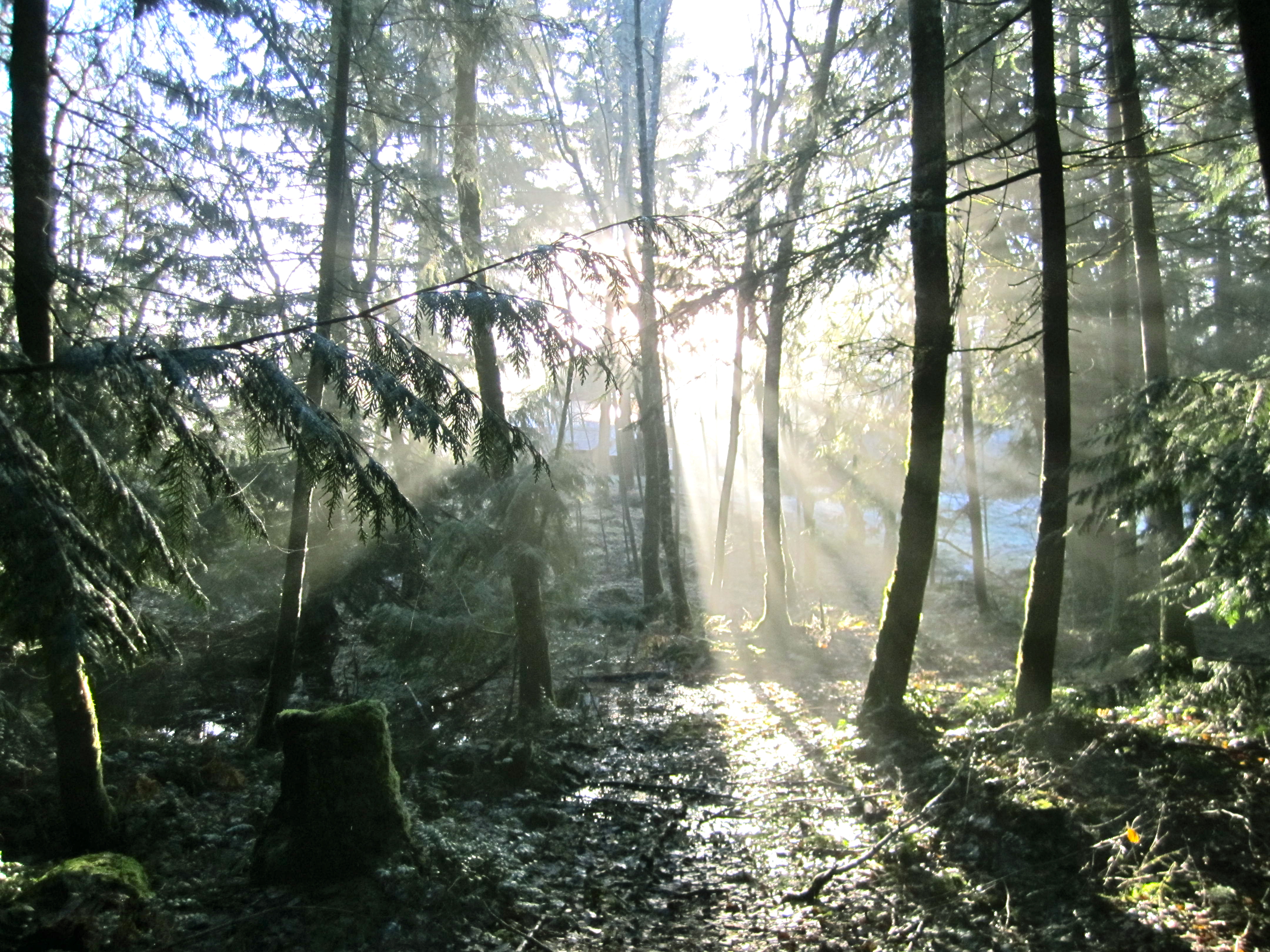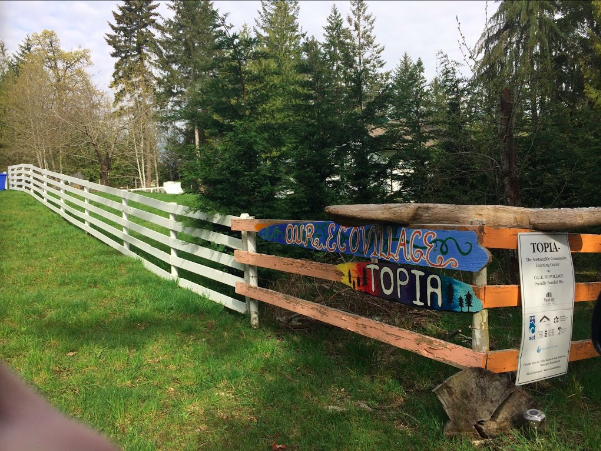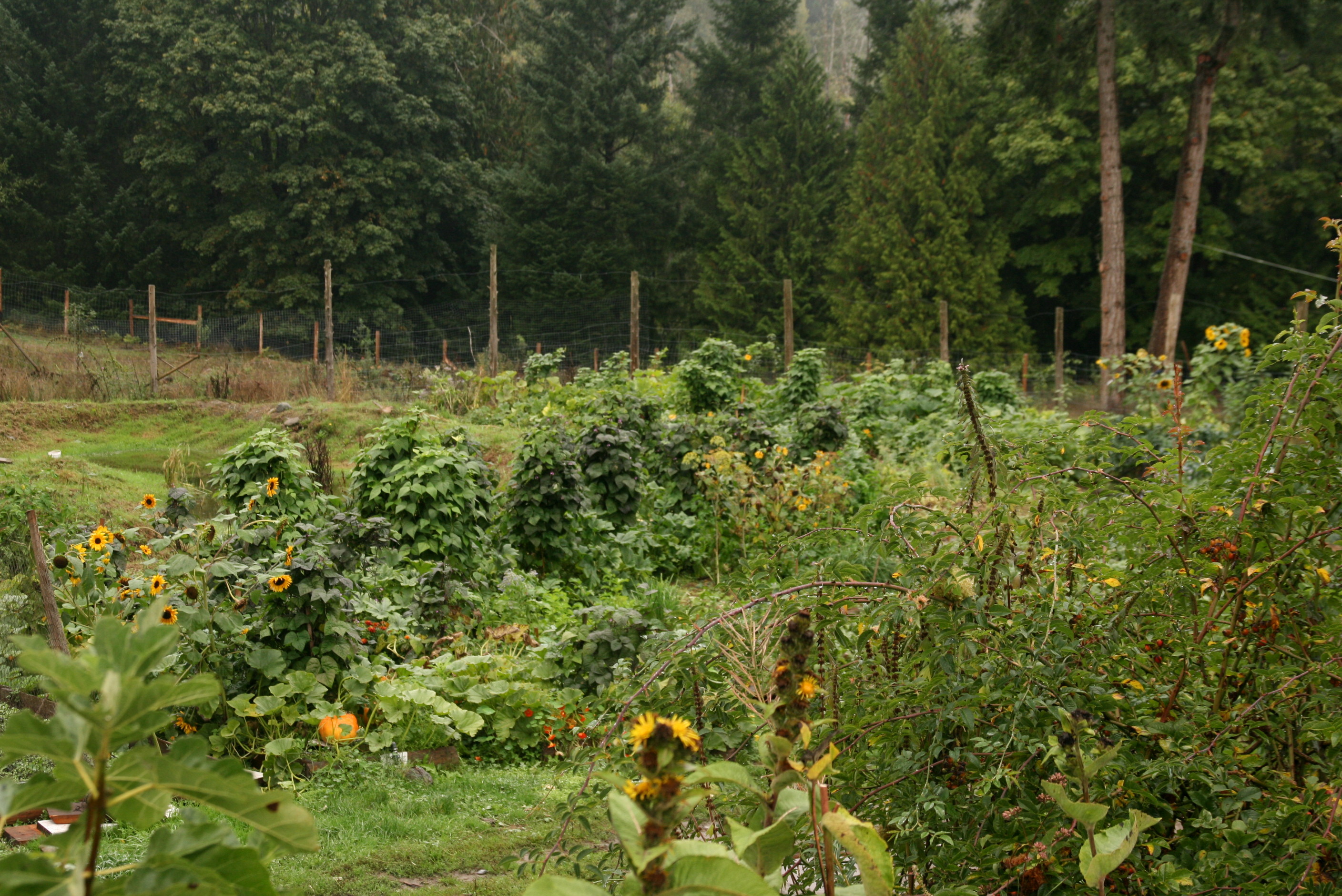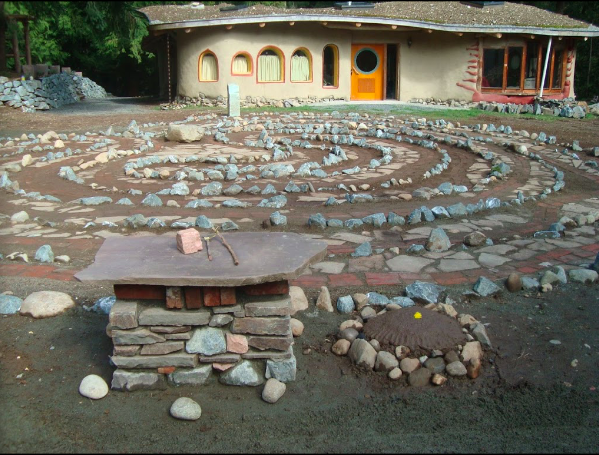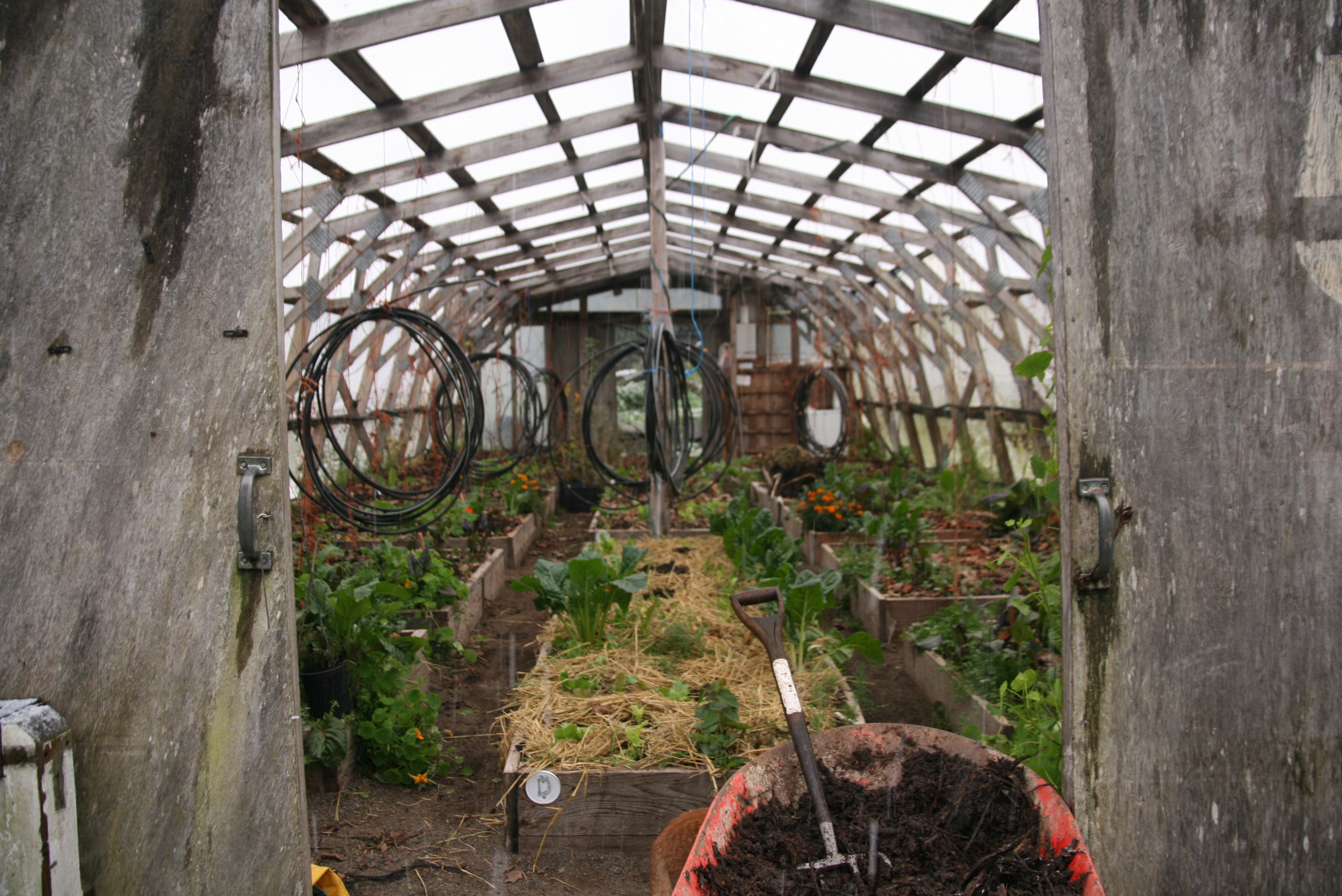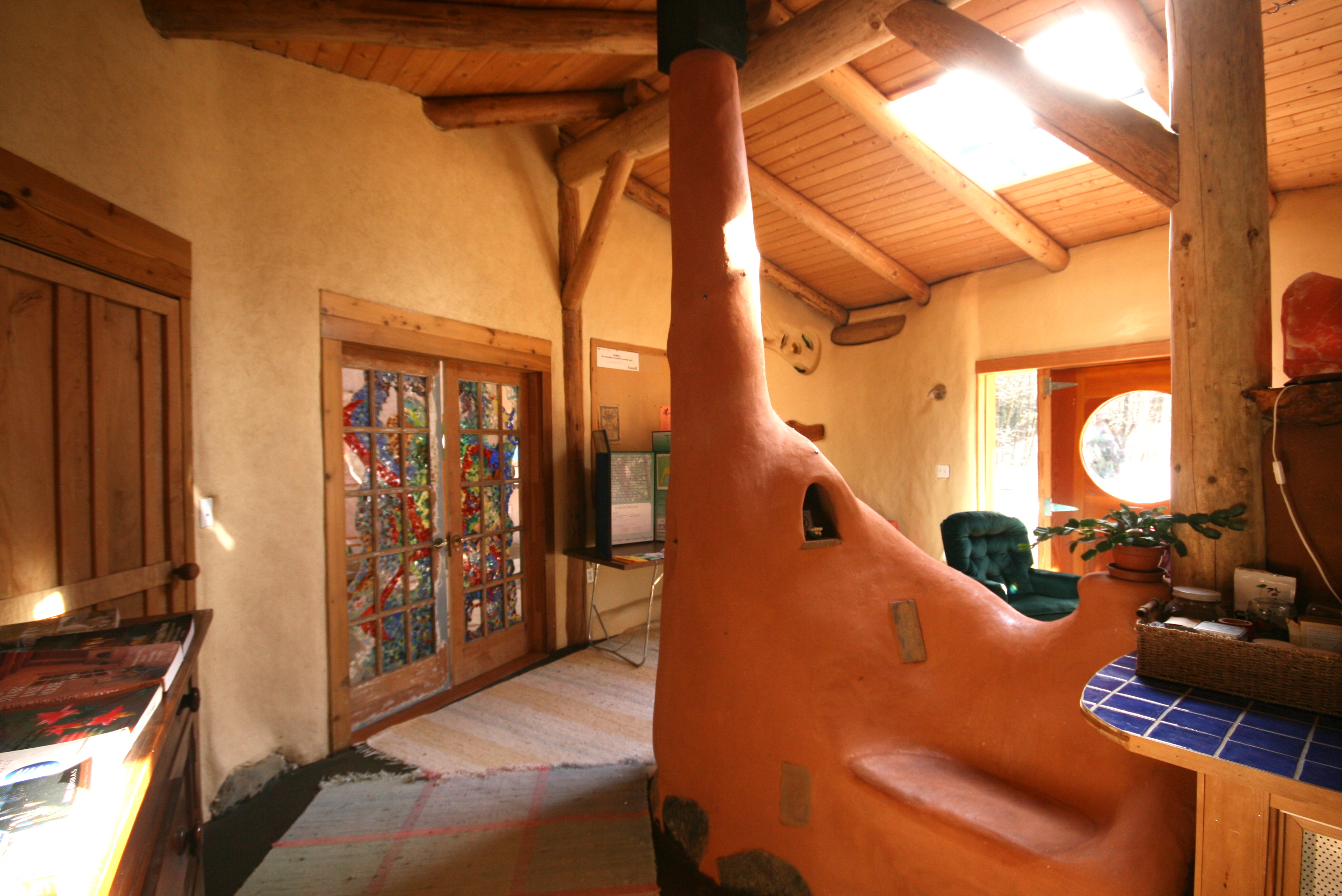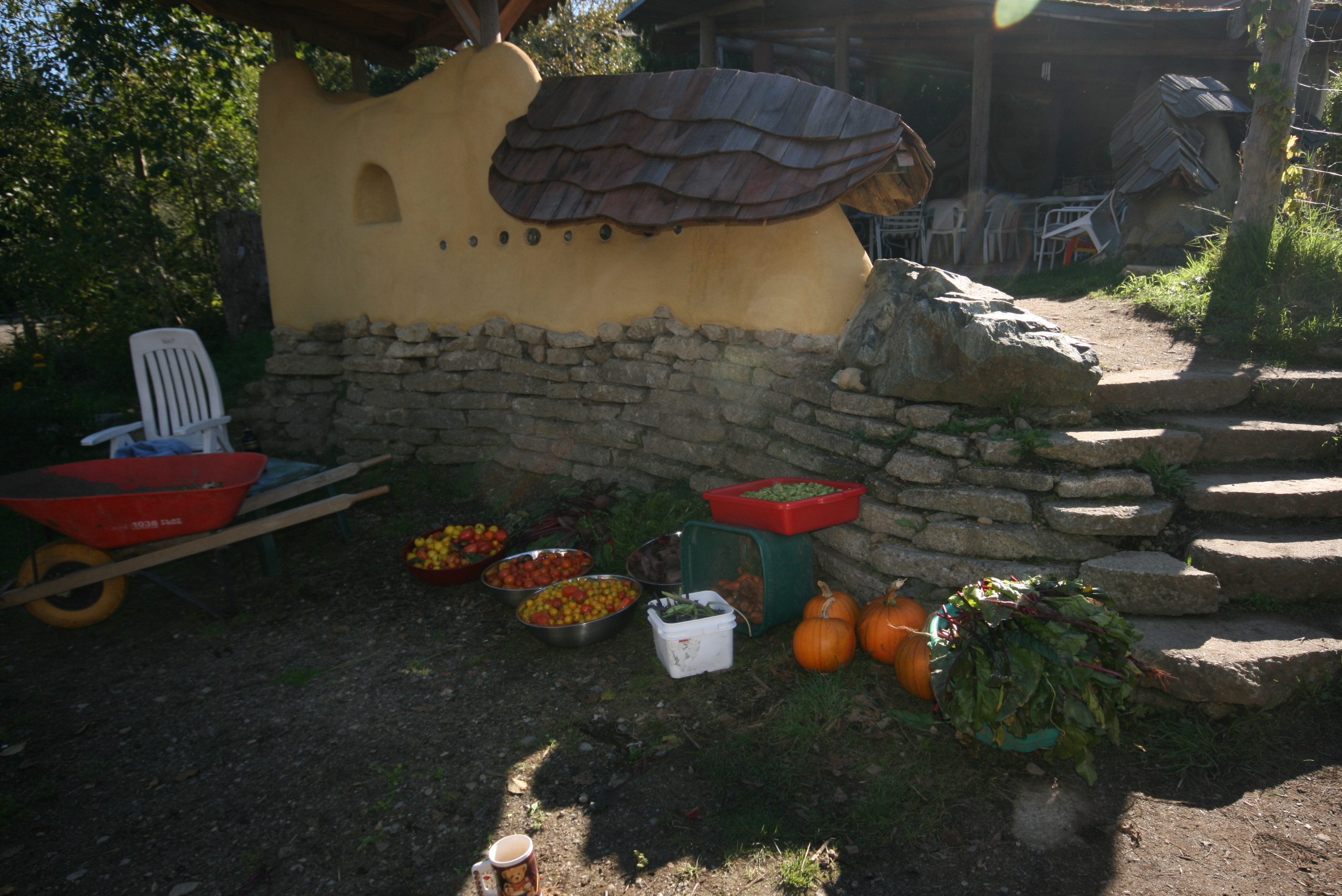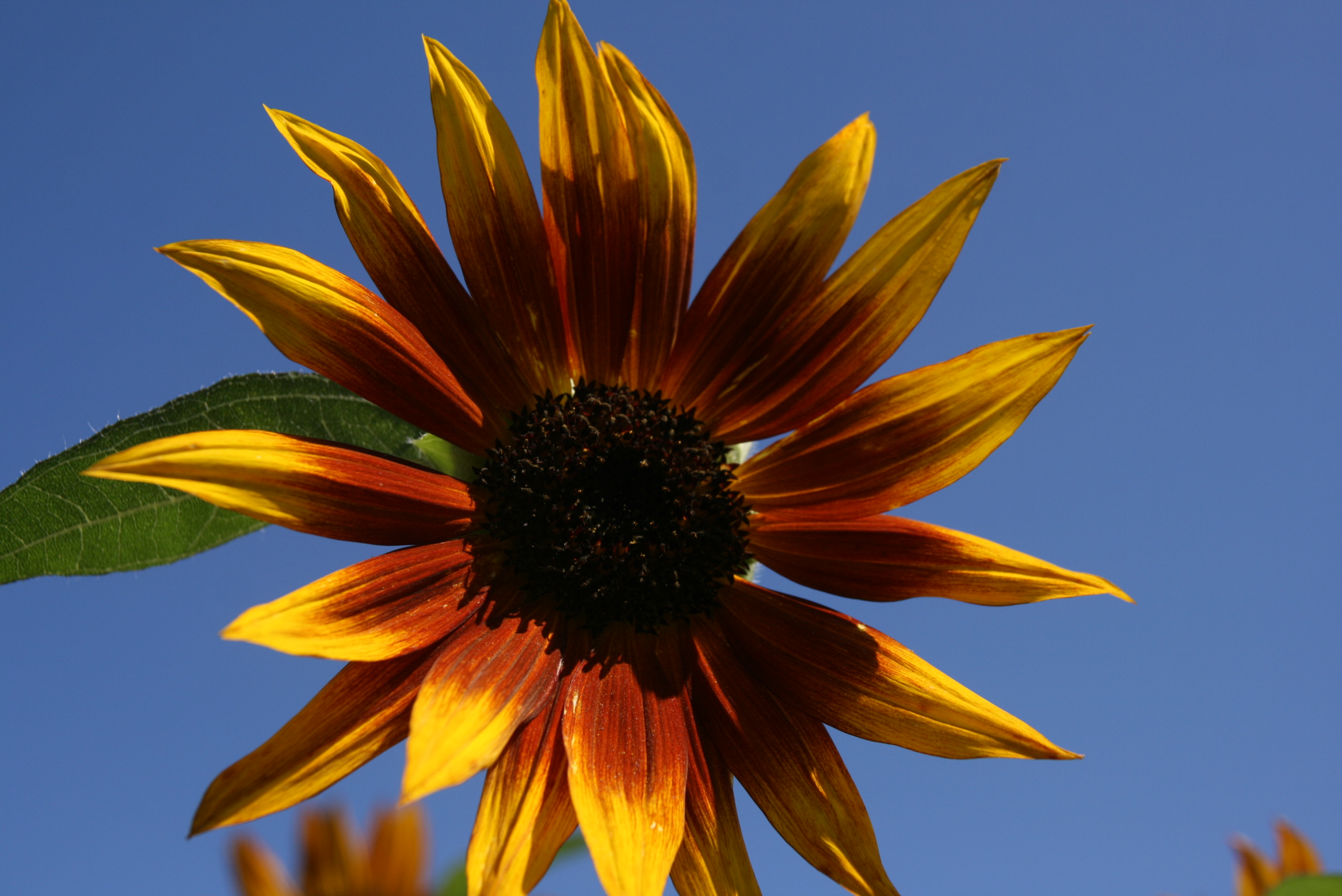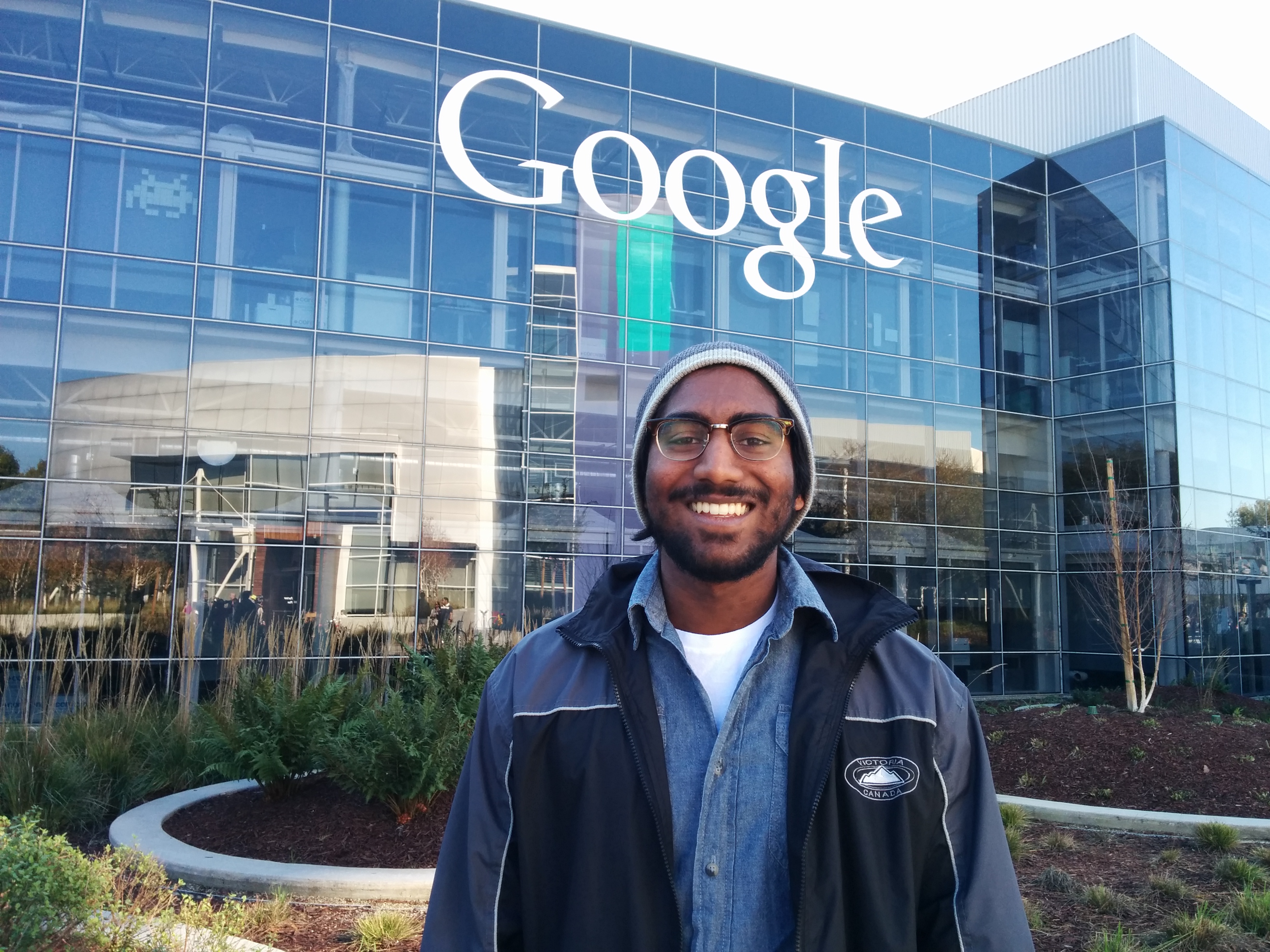Visiting an Ecovillage
This semester, I’m enrolled in a very thought-provoking Environmental Studies course called ES 384: The Integral Systems View of the World. Now, I’m sure you’re wondering what the hell an ‘integral system’ is, and why it should dictate your entire worldview… which is a valid source of curiosity.
While it’s a bit difficult to concisely describe this course without launching into an existential rant and/or sounding like a hippie, the classic one-liner I’ve found myself using is usually something along the lines of, “It’s all about how life is circular and everything is connected to everything else.” (Which I’m now realizing definitely makes me sound like a hippie, but I think I’m OK with that).
In this course, we’ve been talking a lot about the theory of systems — how many individual components interact to create something far more complex than the simple sum of their parts, how change in any one part of a system inevitably influences all other parts, and how all of this systems-thinking can be applied to just about every context imaginable, from ecology and the economy to romantic relationships and personal health.
In the realm of Environmental Studies, systems-thinking urges us to radically re-consider our relationship with the natural world, and starts to deconstruct our dualistic conception of ‘nature’ as being something entirely separate from ‘humanity.’ Instead, systems-thinking challenges us to situate ourselves within nature, acknowledging that humans are an intrinsic part of the natural systems that we’re directly dependent on for our survival. Woah, that sounds like a lot. And admittedly, it is.
While it’s certainly inspiring to talk about all of these massive, paradigm-shifting concepts in theory, applying them right here and now, in real life, is nothing short of life-changing. This past weekend, our class had the incredible opportunity to take a day-long field trip to O.U.R. Ecovillage near Shawnigan Lake, where we were entirely immersed in a living and breathing example of Integral Systems Theory.
Essentially, O.U.R. Ecovillage is an intentional community of people who live and work together in a closely connected system where they’re able to almost completely sustain themselves from the land.
They produce nearly all of their own food using ecological agriculture practices (often referred to as ‘permaculture’), construct their homes by-hand using cobb building techniques (cobb= a natural building material made from soil/clay, water, and fibrous organic matter like straw), process and recycle all of their own waste products, and support one another through community meetings, cooperative decision-making, and resource sharing. In a place like this, it’s so clear to see how everything—people, plants, animals, land, climate—is interconnected and mutually dependent. It’s really a beautiful thing.
We had the privilege of spending the day with Brandy, one of O.U.R. Ecovillage’s long-term residents and original founders, who helped to launch the project with a group of other “outrageously optimistic”, environmentally-minded folks back in 1999. Since then, O.U.R. Ecovillage has become a model permaculture-based community and education centre. They welcome more than 10,000 visitors annually who come to learn about sustainable living.
On our site tour, we wandered through acre upon acre of abundant farmland, where their diverse crops include 15 varieties of tomatoes (including white and purple ones!), 40 varieties of fruit trees, and fresh hops that they grow as part of a ‘beer co-op.’ Additionally, they raise lots of animals including pigs, goats, chickens, ducks, and cows, all of which freely roam around the meadows and woods.
Stepping inside some of the hand-built cobb buildings, I was amazed by the simplistic beauty of the architecture, featuring lush plant-covered rooves, walls plastered with soft earth tones from natural pigments, stair cases adorned with colourful mosaics made from reclaimed glass and tile fragments, and massive south-facing windows and skylights to let in tons of natural light. Though difficult to capture in words, these buildings had an inexplicable aura about them that felt soothing, grounding, and peaceful.
Throughout our day, we even became integrated in to these systems ourselves. With Blundstones on foot and pitchforks in hand, we helped to clean out animal stalls and transport the fresh manure and composted hay to nearby garden beds to prepare them for fall.
After contributing our own energy and labour to the system, we were then nourished by it as we were welcomed in to the outdoor dining room for a lunch of veggie chili, corn on the cob, fresh bread, and salad, almost entirely sourced from the land we’d just worked. Bonding over good food and physical labour, I even felt myself becoming more connected with my classmates who I shared the experience with.
While there’s certainly a lot of work to be done before mainstream society could become as closely integrated and environmentally sustainable as the model set out by O.U.R. Ecovillage, there are definitely some vital lessons I took away from this experience that can be applied to our daily lives.
1. Find ways to be a producer, not just a consumer. Grow a garden, build something, cook your own food, nurture meaningful relationships. Think about giving back to the systems that you’re a part of and promoting regeneration.
2. Resources are finite, and waste doesn’t go away. I’m no physicist, but I know that the amount of matter in the universe doesn’t grow alongside increasing human population and consumer demand. With this in mind, we need to work with what we’ve got, and use it as efficiently and sustainably as possible. Think about closing the loop on your resource cycles; how can something old and depleted become something new and abundant again?
3. A simple life can be a rich and fulfilling life. It was quite profound to stand in a small, circular building made out of mud, scrap metal, and old tires, and realize that it was perhaps the most beautiful space I’d ever occupied. What do you actually need to be content, and feel like you’re fulfilling your life’s purpose? Do more with less, and define your own happiness.
4. Share the human experience. Living and working closely with other people, and sharing our internal dialogue through open conversation, are essential reminders that we’re all a part of something bigger than ourselves. We’re never truly alone, and we’re always more powerful together. In the words of a very wise friend and co-worker of mine: “Separateness is suffering; unity is freedom. Unite with yourself and the world.”

